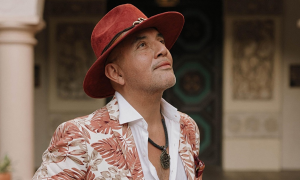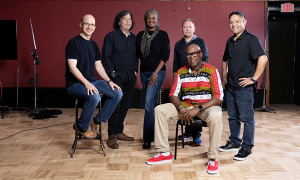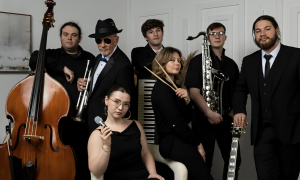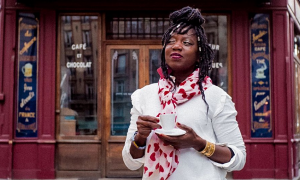Home » Jazz Articles » Take Five With... » Take Five with pianist, composer Itamar Dahan
Take Five with pianist, composer Itamar Dahan
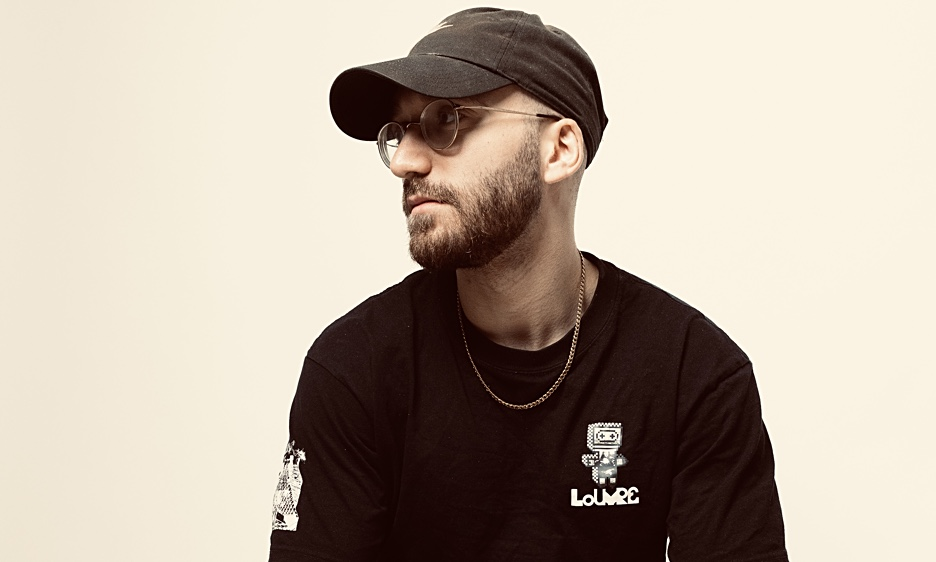
Meet Itamar Dahan
Itamar Dahan is a Brooklyn-based jazz pianist, composer, and producer originally from Israel. Known for his deeply lyrical style and bold harmonic language, he has performed with legendary artists including NEA Jazz Master
Reggie Workman
bassb.1937

Billy Hart
drumsb.1940

Omer Avital
bass, acoustic
David Broza
guitarInstrument
PianoTeachers and/or influences?

Oscar Peterson
piano1925 - 2007

Bill Evans
piano1929 - 1980

Aaron Goldberg
piano
Brad Mehldau
pianob.1970

Joshua Redman
saxophoneb.1969

Mulgrew Miller
piano1955 - 2013

Benny Green
pianob.1963
I knew I wanted to be a musician when...
When I was growing up, every Friday evening my family would gather around the piano and sing together—Israeli songs, traditional melodies, and piyutim. Even as a kid, I would sit at the piano and do my best to follow along. Those moments were the most powerful and connected I ever felt, and that's when I realized music wasn't just something I loved—it was part of who I am.Your sound and approach to music.
I believe music should always tell a story. For me, melody and groove are the core of everything—they're the heart of the music, and the most important elements. If the groove is there, everything else falls into place.Your teaching approach
I believe every student is different and requires a personalized approach. Some students just want to enjoy playing songs and having fun with music, while others are serious and aim to make it their profession. My teaching adjusts to fit the student's goals and personality. I don't believe in putting people down—I focus on identifying their weaknesses and helping them grow from there.Your dream band
Drums:
Eric Harland
drumsb.1976

Christian McBride
bassb.1972

Roy Hargrove
trumpet1969 - 2018
Road story: Your best or worst experience
I remember when I was 16, I traveled to Germany to perform with a big band. That trip ended up being memorable for more than just the music—it was also the first time I got drunk. A few friends and I drank two liters of beer and ended up laughing and stumbling around. It was wild, fun, and one of those moments you never forget—not the most professional story, but definitely a real one.Favorite venue
Smalls Jazz Club, NYC. Tight stage, real listeners, serious energy.Your favorite recording in your discography and why?
Looking Into Your Soul, a duet album I recorded with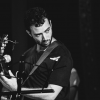
Avinoam Ettun
guitarb.1996
What do you think is the most important thing you are contributing musically?
Bridging cultures—bringing my Israeli background into American jazz, and blending acoustic jazz with modern production in a way that feels honest and fresh.Did you know...
Lately, I've been listening to more mainstream pop and r&b than jazz—which has never happened to me before. It's a surprising shift, but it's opening up new ideas and sounds for me.Music you are listening to now:
Benny Green: These Are Soulful Days (Blue Note, 1999)
Tony Bennett
vocals1926 - 2023

George Shearing
piano1919 - 2011
Amber Mark: Three Dimensions Deep (EMI, 2022)
What are some of the essential requirements to keep jazz alive and growing?
I think we need more real interaction with the audience. Sometimes, instead of trying to play fast and complicated, we should focus on playing something simple and beautiful. To me, jazz is one of the most beautiful art forms in the world—but too often, it feels like some musicians turn it into a chaotic cluster of notes that don't connect emotionally. Keeping jazz alive means making sure it still speaks to people's hearts.What is in the near future?
I think it's time for me to start working on my own music. I have a few pieces I've been holding onto that I really want to share with the world, and I feel like now is the right moment to finally do something with them.What is your greatest fear when you perform?
Losing presence—playing notes instead of telling a story.What song would you like played at your funeral?
That's a tough question to think about, but I'd choose "Young and Foolish" from the Tony Bennett and Bill Evans album. There's something incredibly tender and honest in that version that feels like a fitting farewell.By Day:
I produce music during the day, perform at night, and teach from time to time—music is my day job and my night job.If I weren't a jazz musician, I would be a:
I'd probably be an accountant in the tech world—or maybe a psychologist. Something totally different, but still about understanding patterns or people.If I could have dinner with anyone from history, who would it be and why?
Ludwig van Beethoven. I'd love to meet someone who wrote some of the most emotional and powerful music ever, while being completely deaf. I'd want to ask him how he kept going and how he "heard" the music in his mind... though now that I think about it, I might need to brush up on my sign language first.If I could go back in time and relive an experience, what would it be?
The parting of the Red Sea. Just imagine standing there as the water split in two—one of the most dramatic and powerful moments ever. I'd love to witness that kind of miracle with my own eyes.What's a non-musical habit that helps your playing?
Working out. I think there are so many similarities between music and fitness, especially when it comes to discipline, routine, and pushing through resistance. Just like practicing an instrument, training your body takes consistency and focus.Tags
Take Five With...
Itamar Dahan
AAJ Staff
David Broza
Libi Panker
oscar peterson
Bill Evans
Aaron Goldberg
brad mehldau
Joshua Redman
Mulgrew Miller
Benny Green
Eric Harland
Christian McBride
Roy Hargrove
Avinoam Ettun
Tony Bennett
George Shearing
Billy Hart
Reggie Workman
Omer Avital
Comments
PREVIOUS / NEXT
Support All About Jazz
 All About Jazz has been a pillar of jazz since 1995, championing it as an art form and, more importantly, supporting the musicians who make it. Our enduring commitment has made "AAJ" one of the most culturally important websites of its kind, read by hundreds of thousands of fans, musicians and industry figures every month.
All About Jazz has been a pillar of jazz since 1995, championing it as an art form and, more importantly, supporting the musicians who make it. Our enduring commitment has made "AAJ" one of the most culturally important websites of its kind, read by hundreds of thousands of fans, musicians and industry figures every month.


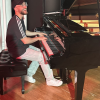
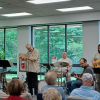
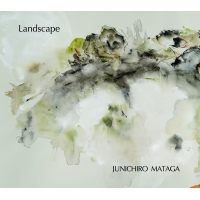

 Buy Now
Buy Now






